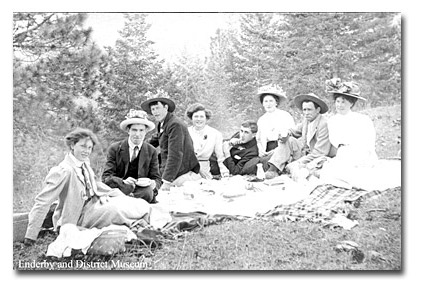|
|
|||
| HOME | OUR BRIAND FAMILY | INTERVIEWS | CONTACT |
 |
What do we look for?
The past is a fiction. But an absolutely necessary mis-en-scene. |
|
Knowing that going towards the past the genetic material that we inherit vanishes with the successive generations, that maybe we are only collecting photos and probably only names and information of people that we never knew, of whom we don't know anything about; that they cannot even speak to us nor transmit us anything at all; people of whom we ignore completely their character, their attitudes, their thoughts; knowing that already today we have a certain genetic material that gives us form and sense, and no matter who has transmitted it, since already it is inside our body; knowing that all that is not going to alter too much our daily existence and is not going to give us any winning push in our lives ... why do we insist on tracking our ancestors? The response probably is, partly, in a work that the neurobiologist Austin Hughes did some years ago. An excellent theoretical model titled " Evolution and Human Kinship ". He indicates that the past is, certainly, a fiction. But a completely necessary fiction. He says that the past is the only stable point in the constant movement of our forms of relation. And that we need of a stable point where to hang our current models of relations in this world. Because of the way in which the genetic relation is altered along the generations, little matters who is installed among our ancestors. But it's important - and very much - that one could have his or her personal structure well shaped. Jorge Luis Borges used to say that " the nostalgia is a form of possession ". We own what we long for; it concerns only to us. A scholar of the social sciences, Jean Chesnaux, said that " the past is the product and fundamental factory of the collective memory, and there is an active relation of this collective character with the past ". In the ancient cultures (Chinese, Indian, Greek, Roman) the ancestors worship had an important significance. And we speak about the intimate family cult of the ancestors, not from the need of belonging to a clan or to a family looking for prestige. They believed in the protection of the spirits of their ancestries, and even that they could have some influence in their present lives. And that if the corresponding offerings were neglected and not given to those ghosts, they could get angry. Yet today, there are religions, as the Mormons, who believe as a dogma that they can obtain the salvation for the spirit of the deceased ancestors, and for it, they have to identify them. From there comes the importance of the genealogical work of the Mormon church, owner of one of the major genealogical files of the world. And in the Polynesia, in Africa, and amongst the American native Indians, the ancestors worship still remains, and they are considered as a protective figure. Not so far back, in 1945, in Japan the cult of the ancestors was prohibited as an official religion of the state, though its private practice was not objected. Do we unconsciously inherit this idea of the ancestors worship , as a form of not dogmatized religion? It shouldn't be very surprising, given that, despite the great amount of people who do not believe in the influence of the stars on our daily life, at least in their moments of reasoning, they don't stop to take a look to the astrology section of a newspaper or of a magazine, "just to see how is going today ". And this is also an inheritance of that time in which the astrology was not apart from the astronomy, and an astrologer could predict the victory or defeat of a king in a battle. Up to what point are "we" "detached" of our ancient beliefs? No one can deny that the dedication to the genealogy is more an interior impulse than a rational activity. But an unconscious transcultural inheritance neither justifies nor explains all the time consumed in joining photos, files, civil documents, flying towards the lands of the ancestors, etc. There must be something else about this passion. In line with Hughes we might say that, since the past is inalterable, as a photography already taken, an already filmed movie, a work of art of the past, it's also a very safe port from we are departing. And it is related with the causal classification - cause, effect - of our minds: if we know wherefrom we depart and where we are, this somehow vents the distress of the unpredictable future. It structure us, gives us order and positioning. This former world that we trace is a static system. Which our subjective interpretation transforms in a dynamic platform. The fictitious dynamics of the past shakes, then, the inertia of our observation. This insertion inside of what is-not-more, is equivalent to challenge the physical laws and to revert an entropic process. When we open a small bottle of perfume, the aroma vanishes and evaporates in the air. We, in this case, turn it to putting back the perfume in the small bottle again, but this time with our own formula.
In a rationalist, not intuitive line, we might justify
the dedication to the genealogy with Baruch Spinoza's famous phrase: " if
you don't want to repeat the past, study it ". But that one is not the way
that leads us to understand the fervor for the vanished. Pablo Briand, June 22nd 2009. A morning of a cloudy sky in Miami Beach.
|
|